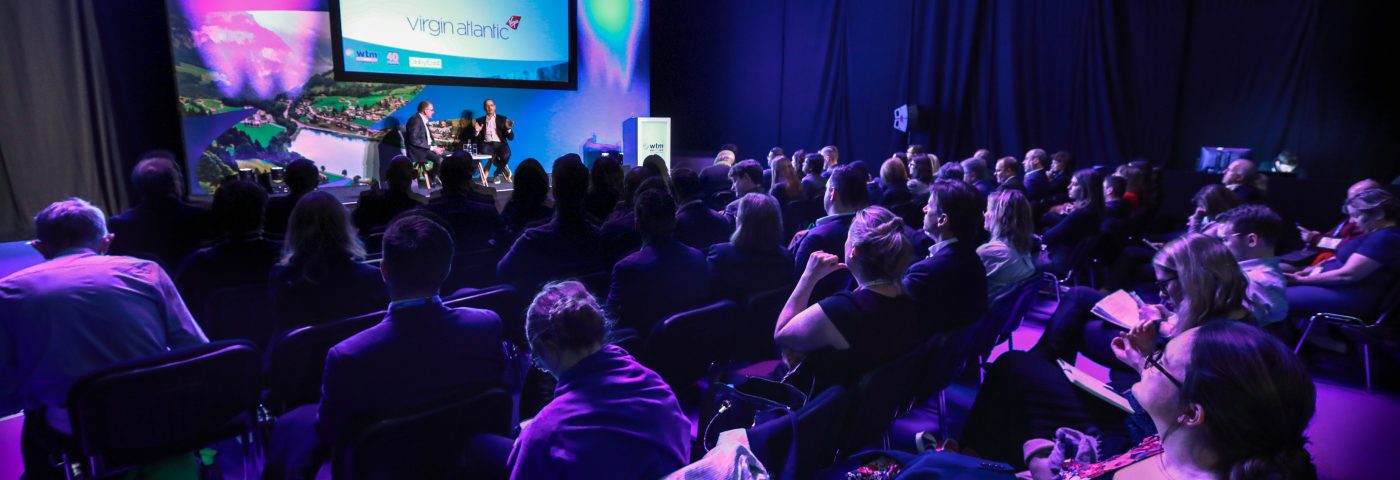The first two days of the 40th edition of WTM London saw three of the travel industries top bosses speak on their next business move and ideas for the future.
Investors see hotels as a hot proposition thanks to growing global traveller numbers, according to a Hilton executive.
Monday saw Simon Vincent, Hilton’s executive vice president and EMEA president, tell a WTM London audience that the rise of budget airlines and the middle classes, particularly in China, meant soaring demand for hotel brands across the spectrum.
“Hotels as an asset class for investors have become a much more attractive proposition,” he said.
Hilton now operates 516 hotels worldwide under 17 brands ranging from luxury to budget. Yet until 2006 the only brand in its portfolio that operated outside North America was Hilton itself. Private equity firm Blackstone paid $26 billion for the group in 2007 and began to extend it internationally before taking it public and exiting last year.
Now, said Vincent, brands like Motto, Hampton and Doubletree sat alongside names like Conrad and Waldorf Astoria. These, he said, meant the group could maintain loyalty among its customers, particularly the 100 million-plus members of its Hilton Honors scheme. “They are happy switching between brands,” he said. “They are road warriors during the week but luxury customers at weekends and on holiday. It is so important we have that mix.”
He named Saudi Arabia and Turkey as big growth areas for the group. He said Egypt had been “quite challenging” following the four-year ban on UK flights to Sharm el-Sheikh, which was lifted at the end of October. He said London properties were “absolutely flying”, due in part to sterling’s weakness, but described the situation as “more challenging” in the UK regions.
Hilton is celebrating its 100th year, this year and Vincent said it had a proud history. “We invented the chocolate brownie, the Pina Colada and the Waldorf salad. We were the first to offer air conditioning and room service,” he said.
The founder and CEO of European low-cost carrier Wizz Air shared his recipe for the company’s phenomenal success on Day Two of WTM.
József Váradi whose airline reported a net profit of 292 million Euros last year, described the uncertainty of the aviation business, saying: “You don’t know what’s going to go wrong. The only thing you know is that something will go wrong and that how you run the business.”
Describing his move into aviation, when he entered the aviation industry to head up Malev Hungarian Airlines, which was the flag carrier of Hungary until 2012, he said: “No-one understood what I was doing, including myself. At that time I thought I was making a huge mistake. It was the best professional decision that I have ever made.
“That led me to Wizz Air. I was fired from Malev and I had to find a new job. We’re an efficient, super-robust airline. That’s the business that we are in. “
Varadi left Malev in 2003 and set up Wizz Air, which now operates 700 routes to 151 destinations.
He added: “We’re not a charity business. We need to make money and we have to be strategically profitable. We don’t fly routes for the sake of flying. Every single route must be profitable.”
The airline set up a UK division, Wizz Air UK a year ago. “It has been profitable from day one. We look at London as a core strategic markét for WizzAir,” he added.
Varadi said he sees Brexit as an opportunity.
“Since the Brexit vote, Wizz Air has grown over 60% capacity in the UK. We like the UK market and we like our performance in the UK. We look at Brexit as an opportunity for us. The UK remains very strategic for us, irrespective of what’s happening with Brexit.”
Keeping to the aviation theme, the second day of WTM London also saw Virgin Atlantic promise to turn Manchester airport into its “fortress in the north”, with expansion plans expected to be revealed on the final day of WTM London.
In a session at the ExCeL event, chief executive Shai Weiss promised an announcement on Wednesday, “Maybe something to do with the demise of Thomas Cook.” The collapsed operator had a number of scheduled transatlantic routes from the northern airport and Virgin is likely to replace more of these.
“We intend to serve the Northern Powerhouse with the fortress in the north,” he said. “We have already added more New York, Barbados and Las Vegas and we will do more. We are the largest carrier with Virgin Connect and the new terminal has a Virgin lounge and a Virgin Holidays lounge. For us, it’s a fantastic opportunity to capitalise.”
He said he had had a “Win in Manchester” strategy before Thomas Cook’s collapse. The carrier was now in expansion mode, he said, after a reshaping of the company with 49% partner Delta that saw it ditch unprofitable routes.
“Our strategy is very much to be a member of the Delta family and we want to be seen as the most beautiful and sexy child,” he said.
Changes have included the closure of Dubai services, which Weiss said had not made a profit in 11 years. Virgin has just launched a Heathrow-Tel Aviv service and begins flights to San Paulo from Heathrow next year.
Weiss indicated that the airline wanted to resume flights from Heathrow to Japan, but wanted to switch airports from its previous destination, Narita, to Haneda, which is closer to the city.
Despite his expansion strategy, Weiss said he had “no problem” with calls from KLM for consumers to consider flying less. But he added: “When you look at 1,500km and above, people need to fly, I don’t believe in going backwards.”


